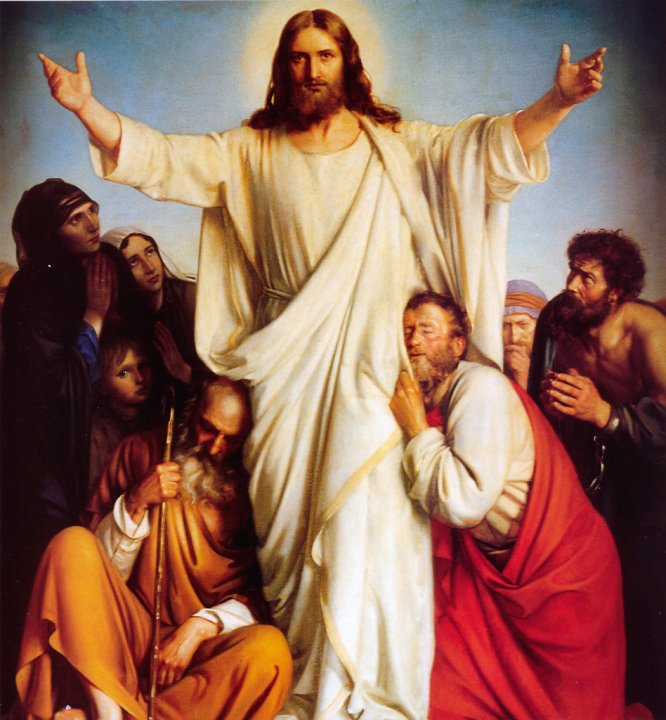SUNDAY- 17TH
WEEK IN ORDINARY TIME –A
I
Reading: 1 Kings 3:5.7-12: You have asked for a
discerning judgement for yourself.
II Reading: Romans 8:228-30: God
intended us to become true images of his Son.
Gospel:
Matthew 13:44-46: He sells everything
he owns and buys the field.
The Parable
of the Hidden Treasure: Giving up all for Christ, 13:44
There are two
interpretations of this parable.
1. Some say that Jesus
Christ is the man (cp.24,37-38) and the treasure in the field represents
potential believers who are in the world. In this interpretation, Jesus sees
the treasure of people in the world, and seeing them he does four things:
a. He hides the
Treasure (Jn 10:14-16,27-30)
b. He goes: He comes to
the world (Lk 19:10, Jn 316-17; 10:10;18:37,1Tim1:15)
c. He sells all: He
gives up heaven in all its glory and splendour (Lk 2:7;22:37; 2Cor 8:9; Phil
2:7-8)
d. He buys: He pays the
ultimate price. He gives his life for the life of people (Rom 5:8; 1Cor 15:3-4;
Gal 1:4; 1 Pet 2:24; 3:18)
e. He joys: He
envisions the glorious day when all his treasure shall be possessed by him (Heb
12:2).
2. Others say the
treasure is the gospel of Christ, the gospel of the Messiah who is ever so
precious. A man sees the gospel, the saving message of Christ, as never before;
that is, he understands the immense treasure of salvation.
a. He hides the
treasure: he tucks it away in his heart, protecting it, not letting it loose.
He seeks and continues to seek the truth of Christ.
b. He goes: approaches
Jesus Christ and makes a decision.
c. He sells all:
repents and turns from his former life to God.
d. He buys: commits all
and gives all to possess the treasure of salvation.
e. He joys: experiences
the completeness and satisfaction of the treasure and envisions and hopes for
more and more, eternally.
Either interpretation
fits what is said, and we are probably safe in saying that neither one exhausts
the meaning.
The Parable
of the Merchant Man and the Pearl of Great Price:
Giving up all
for Christ, Mt 13:45-46
The point of this
parable is the same as the Parable of the Hidden Treasure. Some say the
merchant man is Jesus Christ. Some say the merchant man represents people who
seek after truth (pearls).
1. He seeks pearls
(v.45)
a. Seeks many pears
b. Seeks fine pearls
2. He finds a priceless
pearl (v.46)
a. He goes
b. He sells all he has
c. He buys the pearls
Thought: People seek truth and life in such things as philosophy,
science, technology, wealth, fame, sensation, art, music, literature and
religion. But there is only one pearl that is priceless and worth more than the
world itself-the pearl of Jesus Christ Himself (1Cor 2:3; 2:8-10). Acts 4:12;
1Cor 3:11; Phil 3:8; Col 1:19;2:3,10
Matthew
13:47-53: They collect the good
ones in a basket and throw away those that are no use.
The Parable
of the Dragnet: Separating the Bad from the Good, 13:47-50
The net is the kingdom
of Heaven and the gospel is the message of the kingdom. The sea is the world in
all the depth of its darkness and its unknown. The fishermen represent Christ
and His followers.
1. The parable
describes the kingdom (v.47)
2. A net is cast into
the sea (v.47-48)
a. It generates every
kind
b. It is drawn when it
is full
c. The good are
gathered into containers
d. The bad are cast out
3. The parable is a
symbol of the world’s end (v.49-50)
a. Angels come forth
b. Purpose: Separate
the wicket from the righteous
1) To cast into fire
2) Result: Weeping and gnashing
The Parable
of the Householder: Devotion, Study and Sharing, 13:51-52
This parable teaches a
strong truth: the true disciples of Christ had the same privilege and
responsibility as teachers and householders. They were unusually blessed.
Throughout their lives, they had been instructed in the old counsel, but now
they had been taught by Jesus Christ, the Messiah himself. They now knew the
new counsel of God. Thus, they were to be responsible disciples and share the
whole counsel of God, both the old and the new.
Jesus was charging the
disciples to share what they had learned from old Truth (OT) and the new Truth
(NT).
Thought: God
invites everyone to enter into his kingdom, but not everyone accepts the
invitation.
Jesus is the
perfect copy of the Father. So let us enter as God’s children into God’s
Kingdom by sharing God’s love and Jesus’ life, the life in the Spirit.
The disciple
is like the head of a household. The disciple possess an enormous treasure: the
Old Testament and the New Testament (Rom 15:4; 1Cor 10:11;
Jn 1:17-18; 14:6; Ps 119:142; Rom 8:3; Heb 8:6, 9:14-15; Mt 5:17)
